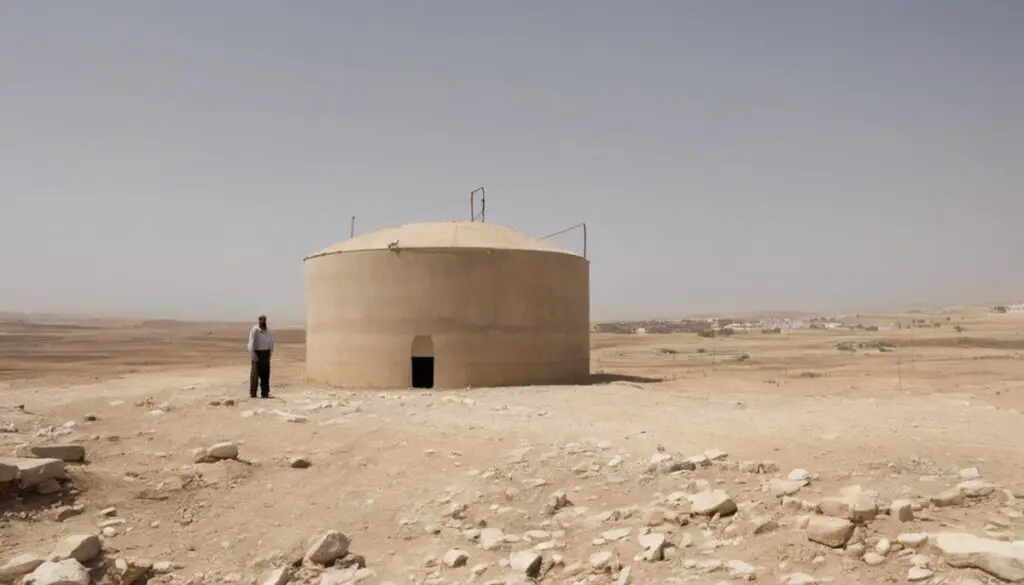Can Palestinians collect rainwater?
Under the complex web of agreements, regulations, and practical realities that defines life in the occupied Palestinian territories, the collection of rainwater by Palestinians is a contentious issue fraught with legal and bureaucratic challenges. According to available data and human rights reports, while there's no explicit ban on the collection of rainwater, the overarching control by Israeli authorities over water resources in the West Bank and Gaza Strip effectively restricts Palestinians' ability to collect and utilize rainwater for their domestic and agricultural needs.
The interim peace accords of the 1990s, particularly the Oslo Accords, designated the control of water and sewage systems, including rainwater, in the Palestinian territories to Israeli authorities. These accords, intended as temporary measures, have resulted in a situation where the infrastructure and permission required for collecting rainwater are heavily regulated. Specifically, Palestinians face significant hurdles in building or maintaining water collection and storage facilities due to a permitting process that is stringent and often results in denial. Israeli authorities have justified these regulations as necessary for managing water resources efficiently and at times, preserving groundwater quality. However, critics argue that the effect, if not the intent, is to prioritize water access for Israeli settlements at the expense of Palestinian needs.
Fact Check
Claim: Palestinians Are Restricted from Collecting Rainwater
Description: The claim refers to the belief that Israeli authorities impose regulations and restrictions that significantly hamper the ability of Palestinians in the West Bank and Gaza Strip to collect and use rainwater for domestic and agricultural needs.
Instances of Israeli actions against Palestinian water collection efforts corroborate the difficulties faced by the Palestinians. Reports by United Nations agencies and human rights organizations such as B'Tselem have documented the demolition of unauthorized Palestinian reservoirs, sewage networks, and water collection pits in the West Bank and East Jerusalem. Israeli officials often cite the absence of permits as the reason for these demolitions, notwithstanding the challenge of obtaining such permits. In recent years, videos and eyewitness accounts have shown instances where water wells and cisterns used by Palestinians for agricultural purposes were filled with concrete by Israeli authorities, alleging they were constructed illegally.
The impact of these restrictions on the daily lives of Palestinians cannot be overstated. With a large percentage of the West Bank under full Israeli civil and security control, many Palestinian communities face severe water scarcity, affecting their hygiene, farming, and general livelihoods. This disparity in water access between Palestinians and Israeli settlers in the West Bank exacerbates existing tensions and highlights the broader contest for resources and control in the region.
Israeli authorities might argue that their policies are aimed at ensuring equitable water distribution and safeguarding environmental sustainability amidst a challenging arid climate. However, without significant changes to the current framework governing water access, the ability of Palestinians to collect rainwater and secure sufficient water supplies remains severely constrained.

Is rainwater deemed Israeli property?
Rainwater in the Palestinian territories operates under a cloak of legal ambiguity and assertive control mechanisms, driven by a broader context of sovereignty and authority dynamics. Israeli control over water resources, including rainwater, in these territories is established and maintained via several layers of agreements, military orders, and administrative practices, spotlighting the complexities of governance and rights in conflict zones.
The Oslo Accords allocated extensive control over water resources in the West Bank to Israel, without explicitly detailing guidelines on rainwater. However, interpretations of these accords alongside subsequent military orders reveal an underlying assumption: that Israel maintains authority over natural resources, including rainwater. This is significant in understanding whether rainwater is deemed "Israeli property." Official Israeli statements on rainwater specifically may be scarce, but the control and restrictions imposed on Palestinian water collection and storage efforts paint a picture of de facto sovereignty over these resources.
Instances where Israeli authorities have undertaken measures against Palestinian rainwater collection facilities underscore this implicit claim of ownership, justified under rationales of legal protocol and environmental protection. Herein lies a vivid manifestation of how sovereignty over natural resources can reflect broader territorial and political claims, leaving Palestinian communities facing serious obstacles in accessing necessary water supplies for daily survival and agricultural vitality.
From an international law perspective, such control raises questions about the right to water, a fundamental human need, and how it intersects with sovereignty over natural resources. The disparities in water access and management infrastructure between Israeli settlements and Palestinian communities illustrate not merely technological gaps but underscore deep-seated injustices and a highly asymmetrical power dynamic.
The role of water scarcity in the region, exacerbated by climatic challenges and intensified through geopolitical strife, brings an added layer of complexity to the discourse on rainwater and its designation. It's crucial to understand this dynamic not only in terms of legal and political contestations but as a pressing humanitarian issue that impacts thousands of lives daily.
While not officially branded as "Israeli property," the regulatory regime and operational control in place effectively positions rainwater—and thereby the means of its collection and use—under Israeli authority within the occupied territories. This arrangement complicates Palestinian access to an essential resource, emblematic of broader tensions inherent in the Israeli-Palestinian conflict, and brings to the fore critical debates about international law, human rights, and the governance of natural resources.

- Amnesty International. Israel's occupation: 50 years of dispossession. Amnesty International. https://www.amnesty.org/en/latest/campaigns/2017/06/israel-occupation-50-years-of-dispossession/.
- B'Tselem. Water crisis. B'Tselem. https://www.btselem.org/water.
- United Nations Office for the Coordination of Humanitarian Affairs. West Bank demolitions and displacement: An overview. United Nations Office for the Coordination of Humanitarian Affairs. https://www.ochaopt.org/content/west-bank-demolitions-and-displacement-overview.

